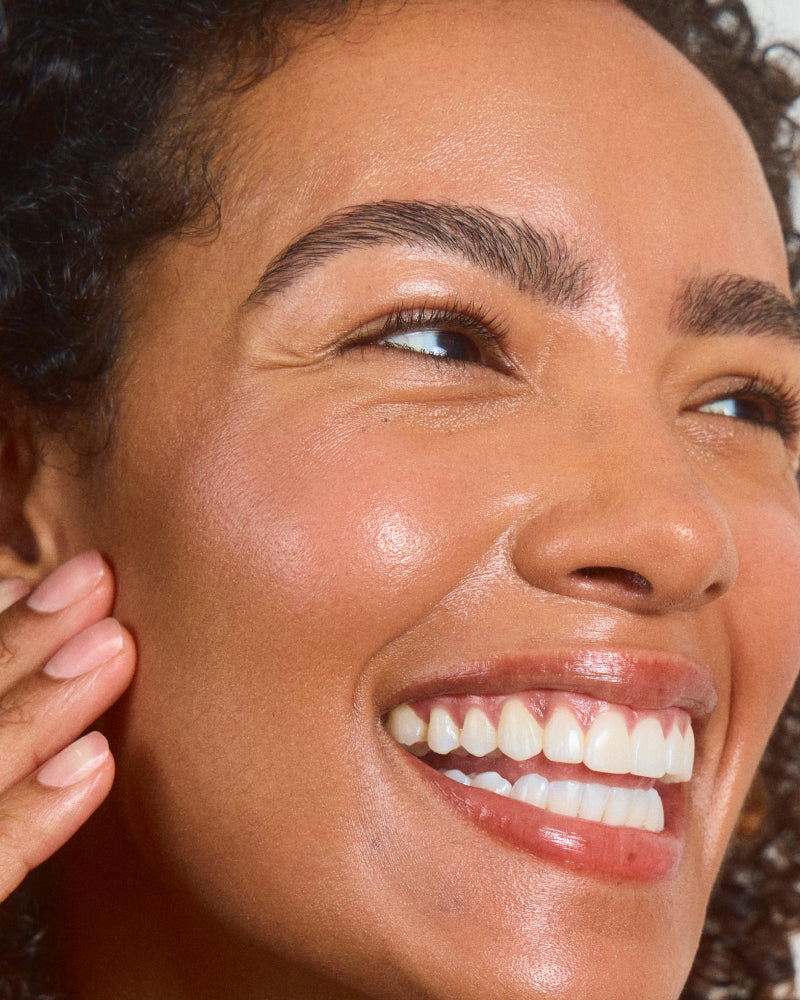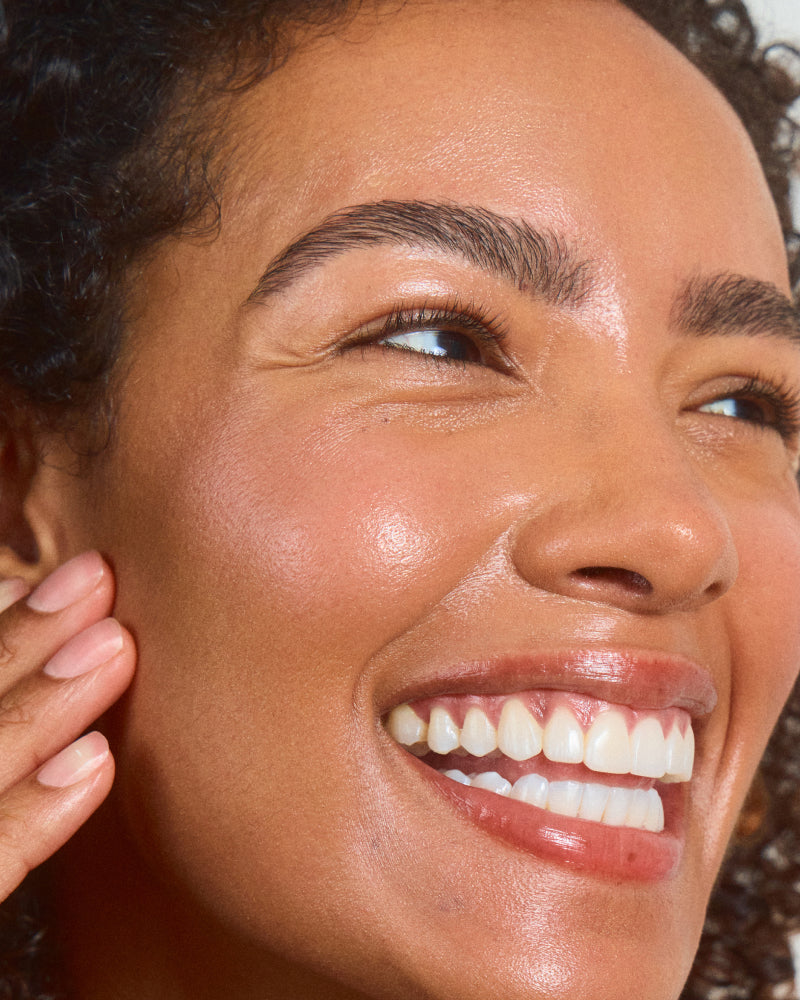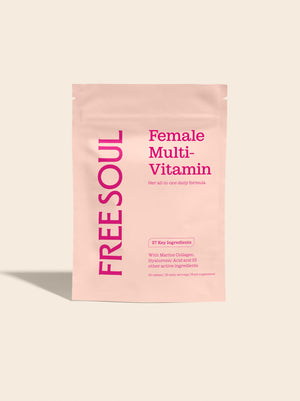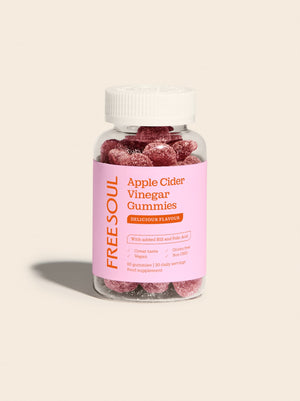Feeling rundown? Energy hard to come by? Skin not at its best? If you’re ticking a few of these boxes without a clear reason, it could be down to one of the major players in your body: Vitamin D.
“Vitamin D contributes to many functions in your body, supporting mood, skin, energy, hormone function, and immune health. When you’re not getting enough, it may show up as fatigue, despite getting 8 hours of sleep, or dry skin, even with a solid skin care regimen,” says Natalie Rouse, Registered Nutritionist and Head of Nutrition at Free Soul.
We’re here to break down the Vitamin D benefits for women and why keeping your levels topped up matters.
What is Vitamin D and why do women need it?
Vitamin D is a fat-soluble vitamin, meaning it’s absorbed when eaten with dietary fat and stored in the body’s liver and fat cells. “The two main types your body uses are Vitamin D2 and D3, with the latter being the most bioavailable form, meaning it's easiest for your body to use. It’s found in foods like fatty fish and egg yolks,” says Natalie.
“However, most of your Vitamin D comes from sunlight. When UVB rays hit the skin, they start a chemical reaction that produces Vitamin D. That’s why deficiencies are more common in winter”.
Vitamin D is especially important for women, as it plays a role in menstrual cycle regulation, fertility, and healthy pregnancy outcomes. Later in life, it also helps the body absorb calcium, helping to maintain bone density and protect against the risk of osteoporosis after menopause.
With recent data suggesting 1 in 6 adults in the UK have low levels of Vitamin D, it’s particularly important for women to make sure they’re getting enough.
The benefits of Vitamin D for women
Due to the wide range of roles they play in the body, there are several Vitamin D2 and Vitamin D3 benefits for women. These are the most important ones:
- Immune system – Vitamin D helps regulate your immune system, making it easier to fight off illness and infection
- Bone health – It helps your body absorb calcium, which is essential for maintaining strong bones
- Mood support – Vitamin D helps regulate dopamine and serotonin, neurotransmitters that influence mood, and deficiency has been linked to depression and anxiety
- Skin protection – It supports skin cell repair and regeneration, which may help protect against dryness and premature ageing
- Hormone balance – Oestrogen and progesterone are influenced by Vitamin D, which can impact menstrual cycle regularity and reproductive health
- Muscle function – Research has found that Vitamin D plays an important role in muscle function and strength
- Healthy hair – Vitamin D contributes to follicle function and a healthy hair growth cycle
Signs of low Vitamin D and deficiency in women
A deficiency isn’t always obvious, but these are a few signs of low Vitamin D in women to look out for:
- Fatigue – Due to its importance for muscle strength, sleep regulation, and neurotransmitter activity, low levels can leave you feeling tired and weak
- Muscle weakness – You may notice reduced strength if you’re not getting enough Vitamin D
- Bone pain – Unexplained aches in your bones could be a sign you’re not absorbing enough calcium, due to insufficient Vitamin D
- Mood changes – Feeling low for no clear reason may be due to a deficiency affecting the production of mood-regulating chemicals, like dopamine and serotonin
- Hair loss – A lack of Vitamin D has been linked to hair shedding and some hair loss conditions
- Sleep disturbance – Studies have shown that people with a deficiency may have a disrupted sleep-wake cycle, due to its role in melatonin production
- Frequent illness – If you’re getting sick more often than usual, it could be a sign your immune system is struggling without enough Vitamin D
How much Vitamin D should a woman take?
According to the NHS, adults should aim for 10 micrograms of Vitamin D daily. This is particularly important if you’re not getting much sun exposure, either because you spend a lot of time indoors or are surviving through a typical UK winter.
Is Vitamin D safe to take daily?
“Yes - and while the NHS recommends 10 micrograms daily as a minimum for general health, adults can safely take up to 100 micrograms per day. Our daily serving provides 100 micrograms, offering the full safe allowance to help you maintain optimal vitamin D levels year-round.”
If you’re pregnant, breastfeeding, managing a health condition, or taking medication, it’s always best to check with your GP before starting any new supplement.
Best sources of Vitamin D
The best ways to get sufficient levels of Vitamin D are:
- Sunlight – This is your main source, but in the UK, it’s hard to get enough from sunlight alone, especially between October and March.
- Foods – Eggs, oily fish, and Vitamin D fortified foods (like cereals and plant-based milks) are good ways to top up your levels
- Supplements – These can be especially useful in the winter months or if you follow a plant-based diet. Vitamin D3 is the most effective form and can be widely found in vegan-friendly supplements.
The best vitamin D supplement for women should contain at least 10 micrograms, ideally in a blend that also supports other areas of women’s health, like Free Soul’s Vitamin D3 +K2 and Biotin.
Vitamin D and hormones: What’s the link?
As we’ve mentioned, Vitamin D supports hormone balance in the body, but how?
“Vitamin D helps regulate the production of oestrogen and progesterone by interacting with receptors in the ovaries and other parts of the endocrine system (the glands and organs that release hormones)”, explains Natalie. “Low levels may disrupt this process and cause symptoms of hormonal imbalance”.
For example, one study found that women with low levels of Vitamin D had significantly lower oestradiol (a form of oestrogen) which is associated with a higher likelihood of irregular menstrual cycles.
Insufficient Vitamin D levels have also been linked to an increased risk of PMS symptoms, such as anxiety, fatigue, and cramps, while another found that low levels of Vitamin D and calcium might contribute to more severe PMS symptoms.
All things considered, keeping your Vitamin D levels topped up can be a simple way to give your body some background support when your hormones are fluctuating.
Vitamin D for skin, hair, and mood
Shedding hair, dull skin, and a low mood are all potential signs that your Vitamin D levels aren’t where they should be. Here’s why:
Skin
Vitamin D supports skin cell turnover and repair, and also helps maintain the skin's natural barrier. That’s why dryness and irritation are often linked to low Vitamin D. When combined with suitable nutrition and a good skincare regimen, healthy Vitamin D levels may help support a more hydrated, radiant complexion.
Hair
Vitamin D helps hair follicles to function as they should, keeping your hair growth cycle going strong. Deficiency has been linked to hair shedding, so if you notice more strands are clogging up the shower than usual, it could be worth checking your levels.
Mood
Vitamin D affects neurotransmitter function, including dopamine and serotonin. Low levels have been linked to low mood and, in some cases, depression. While not a replacement for mental health support, addressing a deficiency may help support emotional wellbeing.
Overall, Vitamin D plays an important role in many areas of women’s health, making it important to maintain adequate levels. Keep an eye out for symptoms that might indicate your levels are low and take extra care to top up when the days get shorter.
FAQs: Women & Vitamin D
How much Vitamin D should a woman take per day?
The NHS recommends a Vitamin D intake of 10 micrograms a day for all adults, particularly during autumn and winter, or if you aren’t getting much exposure to sunlight.
What is the best vitamin D supplement for women?
Look for a supplement that provides 10 micrograms of Vitamin D per dose, ideally in the form of Vitamin D3. It’s also worth checking the label to make sure there are no unnecessary extras, like sugar or fillers.
Is Vitamin D good for female hormones?
Yes, Vitamin D supports the regulation of oestrogen and progesterone, two hormones involved in the menstrual cycle. This makes it important for hormonal balance and reproductive health.
Can Vitamin D help with fatigue and low mood?
Vitamin D plays a role in neurotransmitter activity, including serotonin and dopamine, which influence mood. If you’re deficient, supplementing may help support emotional wellbeing and energy levels.
What are symptoms of low Vitamin D in women?
Common signs include hair shedding, dry skin, muscle weakness, bone pain, low mood, fatigue, sleep disturbance, and frequent illness.
What’s the best form of Vitamin D supplement?
Vitamin D3 is considered the best form of supplement, as it is the type made from sunlight, and it's easier for your body to use than Vitamin D2.
Should pregnant women take Vitamin D?
Vitamin D is commonly recommended during pregnancy, especially between October and March. However, always check with your GP or midwife before starting a new supplement.
Can I get enough Vitamin D from food alone?
Most people do not get enough Vitamin D from food alone. While foods like eggs and oily fish can help, sunlight is the main source, which is why many people in the UK benefit from a daily supplement, especially during winter.








